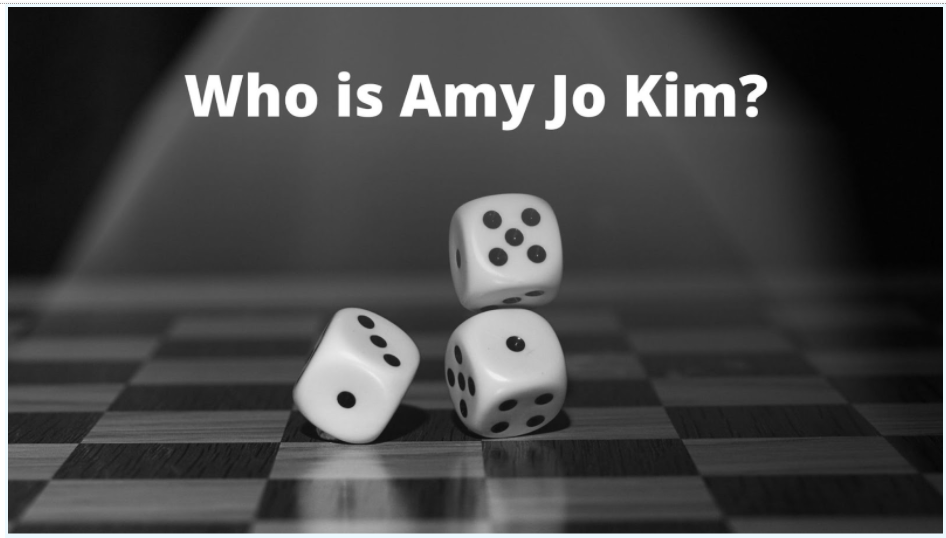Amy Jo Kim is a game designer and game thinking consultant who has been working for a number of years with game designers, game makers, and organizations to help them realize their game design potential.
Amy Jo is the author of the Game Design Foundations book series (Game Thinking: Innovate smarter & drive deep engagement with design techniques from hit games and Community Building on the Web: Secret Strategies for Successful Online Communities), a founder of the Game Developers Conference Games & Playable Media group, and the founder of the Game Developers Conference Playable Games group, which focuses on the challenges and opportunities of creating playable games.
She is also the co-founder of the Agency for Play, an advocacy organization to expand the positive impact of games in society and improve access to game design education. Amy Jo has consulted with organizations as small as a few people and as large as the US military and has worked with game developers in the fields of
Amy Jo Kim is a game designer and academic, who has spent the past decade studying and designing games. She teaches game design at DigiPen Institute of Technology and New York University and is a co-founder of the Game Playwright Institute, a non-profit focused on training game designers.
She has worked with companies like Google, IDEO, and Nokia, and has consulted for studios like Gamelab and Niantic. She is a frequent speaker at game conferences and game design meetups and is the author of the book Game Thinking, which explores game design from the perspective of a designer.
Works
Amy Jo Kim is a passionate game creator and designer. She’s the founder and CEO of game studio and design studio, Playdom.com, and is building Playdom’s first game, Playdom Forge.
She’s also the author of Game Thinking: A Playdom Design Manifesto. Amy Jo is committed to building the next generation of video game creators and the Playdom design philosophy is an extension of that mission.
Read more about the Author here.
Notable quotes
“
- “The most powerful story is happening inside your customer’s head, a personal narrative of how engaging with your product will transform them into a more powerful, more skillful, more connected version of themselves.”
- “if you’re innovating, you need to find and delight a small early market before you target that larger segment.”
- “The best way to have a good idea is to have lots of ideas.”
- “If you’ve got something valuable to say, if you can say it in a compelling way people understand; [being] late/early doesn’t matter so much. … Get the thing that you have to state out into the world so people can react to it. That’s an incredibly powerful thing.”
- “If you want to capture the magic of games in your product, it really has a lot more to do with building the right systems than sprinkling [points, badges, and leaderboards] on top.”
- “Find some way for your most dedicated customers to play a role in the community that gives them impact. People like swag, they like being paid, they like being praised. They like all of that, but there’s nothing that can beat having an impact on a community you care about.”
- “If you’re building something new, and you want it to be inclusive, find people from a variety of socioeconomic backgrounds, different skin tones, different religions, whatever it is that you want to be inclusive about. Actively recruit early adopters from those groups and make sure that their voice is heard at the beginning and then throughout.”
- “There are so many apps, communities, marketplaces, and services that fail because they [just] have great onboarding. They took to heart that onboarding is so important. … What about day five? What about day ten? There’s nothing there. It’s so common. The reason it’s common is it’s much easier to design pretty onboarding than to figure out your core loop. It’s actually the hardest part. It’s the part that’s going to drive retention.”
- “I certainly can tell stories about that but eBay is an interesting example. A lot of what I did was helped them tune their reputation system and develop new systems, their profiles, and evolving profiles which turned into a cornerstone of their business. A lot of that came out of gaming.”
- “I brought all of my experience from tech doing community design and system design into those experiences and found that there is a lot of psychology and a lot of perception in it.”
Inspiring Talks by Amy Jo Kim
Interview
